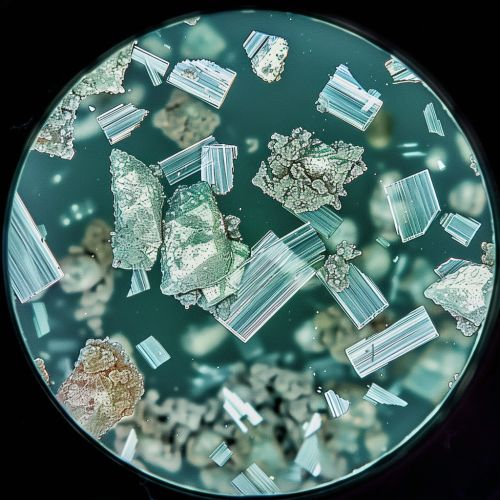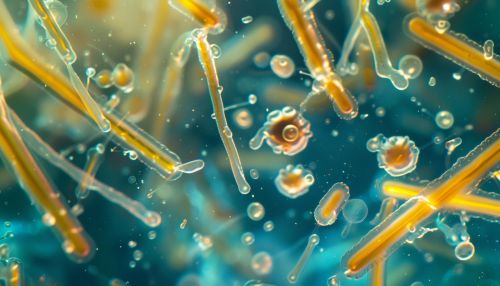Hydrocarbonoclastic bacteria
Introduction
Hydrocarbonoclastic bacteria (HCB) are a group of microorganisms that have the unique ability to degrade hydrocarbons, a class of organic compounds consisting entirely of hydrogen and carbon. These bacteria play a crucial role in the biodegradation of petroleum hydrocarbons in marine environments, making them essential for the remediation of oil spills and other forms of pollution.
Classification and Characteristics
HCB belong to various genera, including Alcanivorax, Marinobacter, Thalassolituus, and Oleispira, among others. These bacteria are typically Gram-negative and are found predominantly in marine environments, especially in regions affected by oil pollution. They are characterized by their ability to use hydrocarbons as their sole source of carbon and energy, a trait that distinguishes them from other bacteria.
Metabolism
The metabolism of HCB is centered around the degradation of hydrocarbons. These bacteria possess specialized enzymes known as oxygenases, which initiate the oxidation of hydrocarbons. This process results in the breakdown of complex hydrocarbons into simpler compounds, which can then be further metabolized by the bacteria to generate energy.
Role in Bioremediation
Due to their ability to degrade hydrocarbons, HCB are considered key players in the bioremediation of oil-contaminated environments. Bioremediation is a process that uses naturally occurring organisms to break down hazardous substances into less toxic or non-toxic substances. HCB can degrade a wide range of hydrocarbons, including alkanes, aromatics, and polycyclic aromatic hydrocarbons (PAHs), making them effective tools for cleaning up oil spills.


Factors Influencing HCB Activity
The activity of HCB is influenced by a variety of environmental factors, including temperature, pH, salinity, and the presence of nutrients. For instance, the degradation of hydrocarbons by HCB is typically more efficient at higher temperatures, which increase the rate of enzymatic reactions. Similarly, the presence of certain nutrients can enhance the growth and activity of HCB, thereby increasing their hydrocarbon-degrading capacity.
Potential Applications
Beyond their role in bioremediation, HCB also have potential applications in other areas. For example, they could be used in the production of biofuels, as they can convert hydrocarbons into bioenergy. Additionally, the enzymes produced by HCB could be harnessed for industrial applications, such as the synthesis of fine chemicals.
